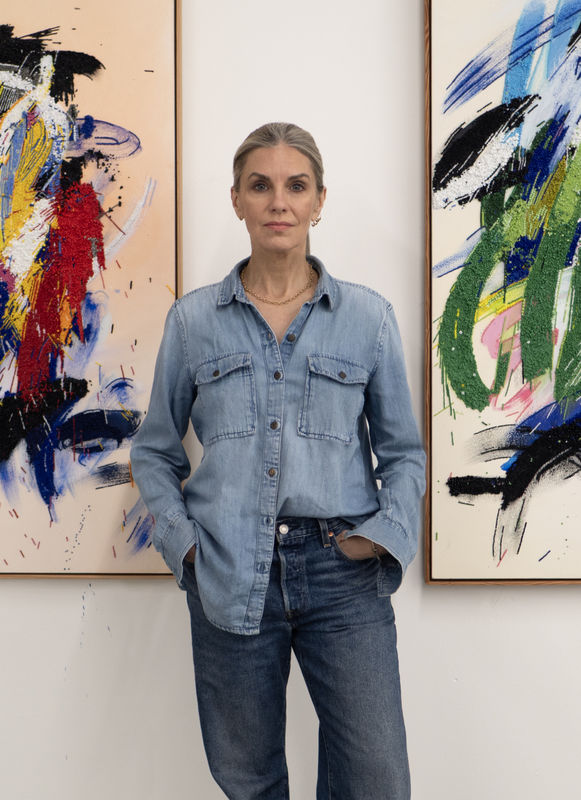Vera Molnàr, pioneer of digital art, has died Alongside their tribute, Le Monde publishes one of the artist's very last interviews
Par Emmanuelle Lequeux
Née en Hongrie, la première artiste à s’emparer de l’informatique dès les années 1960 aura eu une carrière prolifique, malgré sa reconnaissance tardive, et fera l’objet d’une rétrospective au Centre Pompidou en 2024. Elle est morte le 7 décembre, à 99 ans.
Première artiste à s’être emparée de l’informatique dès les années 1960, elle avait inventé une abstraction pleine de grâce géométrique et d’humour. Sa reconnaissance fut tardive : dix ans à peine que les musées célèbrent enfin son inventivité. Mais elle n’en avait cure, comme elle nous l’avait raconté, trois semaines avant sa disparition, quand nous l’avions rencontrée dans la chambre de sa maison de retraite du 14e arrondissement de Paris, où elle est morte.
D’emblée, elle nous avait prévenus : « Je suis sourde, je vois mal, je vais avoir 100 ans, alors n’attendez pas de moi un cours magistral sur la création artificielle. » Puis elle avait souri de sa renommée si tardive : « Vous savez, Serge Poliakoff, ce grand peintre russe, a dit : “La vie d’un peintre, c’est très simple, il n’y a que les soixante premières années qui sont dures.” »
(...)
Translation :
By Emmanuelle Lequeux
Born in Hungary, the first artist to use computers in the 1960s had a prolific career, despite her late recognition, and will be the subject of a retrospective at the Centre Pompidou in 2024. She died on 7 December, aged 99.
She was the first artist to use computers in the 1960s, inventing an abstraction full of geometric grace and humour. Her recognition came late: it was barely ten years ago that museums finally celebrated her inventiveness. But she didn't care, as she told us three weeks before her death, when we met her in her bedroom at the retirement home in the 14th arrondissement of Paris, where she died.
She warned us from the outset: "I'm deaf, I can't see very well and I'm going to be 100, so don't expect me to give you a lecture on artificial creation". Then she smiled at her belated fame: "You know, Serge Poliakoff, that great Russian painter, said: 'The life of a painter is very simple, it's only the first sixty years that are hard."
(...)

















































































































































































